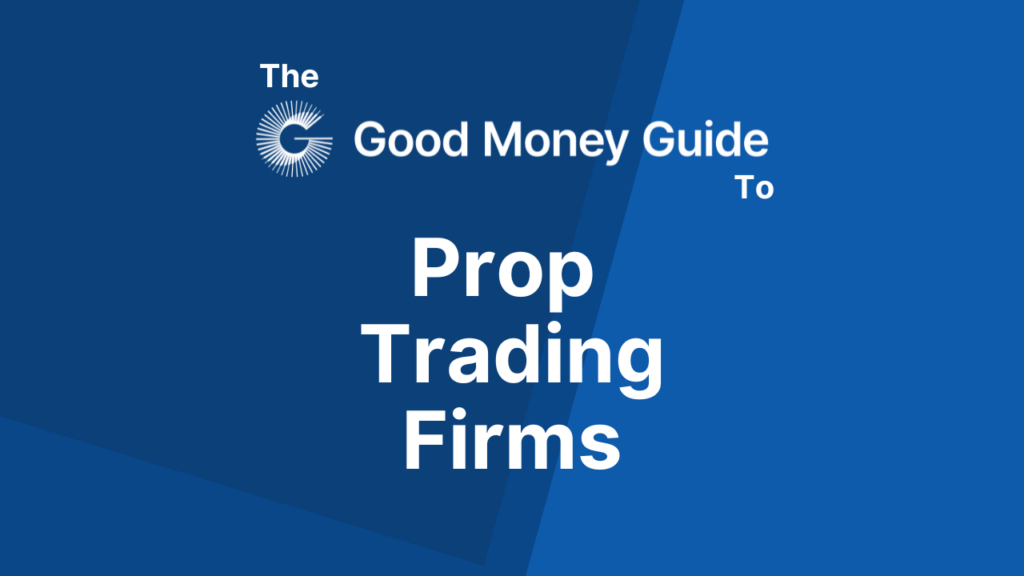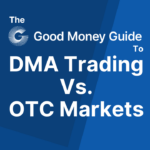Prop trading firms aren’t what they seem. Prop trading used to be a serious business, producing serious results from serious traders. But, now it’s been taken over by funded trader programs selling the lifestyle dream to wannabe traders.
We’ve covered before how funded trader programs are basically big scams, unregulated quasi-trading platforms, running b-books against customer traders, on the assumption that they will lose money. It’s just a way of circumventing the regulations to offer trading platforms to people who otherwise wouldn’t pass the suitability test.
Of course, there are some legit prop trading firms, but if you see any advertising on social media, I’d avoid them.
If you want to know what real prop trading is, have a read of either The Trading Game by Gary Stevens, or Flash Crash, the story of the Hound of Houndsditch.
Below is an overview of what prop trading actually is, instead of the trading competition they have become…
What is proprietary trading?
Proprietary trading (prop trading) is when a financial institution trades and invests their own money to generate profits, rather than charging fees and commission from trading and investing on behalf of their clients’ money.
Higher potential revenue is a key benefit of proprietary trading, but it can also provide additional benefits for a firm, such as allowing them to become market maker (and therefore help set the price of the asset in question), or to build up a stockpile of an asset to provide liquidity for their clients.
How does proprietary trading work?
Financial firms (such as banks and asset management firms) that undertake proprietary trading have the opportunity to generate larger gains than by simply taking fees, but the risk is much higher too.
In simplistic terms, imagine a company with £10 million in cash reserves. They’re considering an investment that could potentially make gains of 10% over the next year, which would mean generating revenue of £1 million.
That’s significantly higher than what the company would generate in interest if they left the funds in cash. For example, some banks currently offer interest of only 1.85% on their business savings accounts for balances over £10m.
While proprietary trading is generally regarded as something that mainstream banks and financial firms do ‘on the side’ of their normal client trading activities, there are some investment companies such as Jane Street Capital and Citadel Securities (known as prop trading firms) who’s sole focus is trading their own funds and acting as market makers.
Is proprietary trading illegal?
No, proprietary trading is not illegal. In the UK proprietary trading is an allowable component of any company’s business model, as long as they meet the usual regulatory conditions such as capital adequacy and transparency.
With that said, firms that do it also have to be very careful not to end up on the wrong side of the law for other, related offences, like insider trading.
How is proprietary trading regulated?
Proprietary trading had a part to play in the 2008 global financial crisis as banks and other big firms made speculative bets on assets like mortgage backed securities.
The UK’s approach has been not to ban proprietary trading specifically, but to instead focus on strengthening the overall regulatory requirements for a strong financial sector. In simple terms, they don’t mind firms taking higher risks in certain areas of their business (e.g. prop trading desks), as long as that is balanced out by the overall risk of the bank as a whole.
That’s in contrast to the US, where the ‘Volcker Rule’ effectively prop trading until the regulations were relaxed slightly in 2020.
What’s the difference between proprietary trading and hedge funds?
A hedge fund invests client money in exchange for fees and commissions, whereas proprietary trading is when a company invests its own money.
Does Goldman Sachs do proprietary trading?
Goldman Sachs used to operate significant proprietary trading desks prior to the passing of the Volcker Rule. The bank had stated that up to 10% of its revenue was generated through prop trading strategies, but closed down its ‘principal strategies desk’ in 2010.
Why do some people consider proprietary trading to be bad?
Proprietary trading creates an environment for conflicts of interest, illegal activity like insider trading, as well as high risk strategies which could potentially put client funds at risk. This isn’t to say that all proprietary trading is bad, but it does come with greater risk than typical financial firms operations.
Do banks still do proprietary trading?
Yes, outside of the United States prop trading is a common banking practice in major economies such as the UK, European Union, Canada and Australia.

Richard is the founder of the Good Money Guide (formerly Good Broker Guide), one of the original investment comparison sites established in 2015. With a career spanning two decades as a broker, he brings extensive expertise and knowledge to the financial landscape.
Having worked as a broker at Investors Intelligence and a multi-asset derivatives broker at MF Global (Man Financial), Richard has acquired substantial experience in the industry. His career began as a private client stockbroker at Walker Crips and Phillip Securities (now King and Shaxson), following internships on the NYMEX oil trading floor in New York and London IPE in 2001 and 2000.
Richard’s contributions and expertise have been recognized by respected publications such as The Sunday Times, BusinessInsider, Yahoo Finance, BusinessNews.org.uk, Master Investor, Wealth Briefing, iNews, and The FT, among many others.
Under Richard’s leadership, the Good Money Guide has evolved into a valuable destination for comprehensive information and expert guidance, specialising in trading, investment, and currency exchange. His commitment to delivering high-quality insights has solidified the Good Money Guide’s standing as a well-respected resource for both customers and industry colleagues.
You can contact Richard at richard@goodmoneyguide.com



